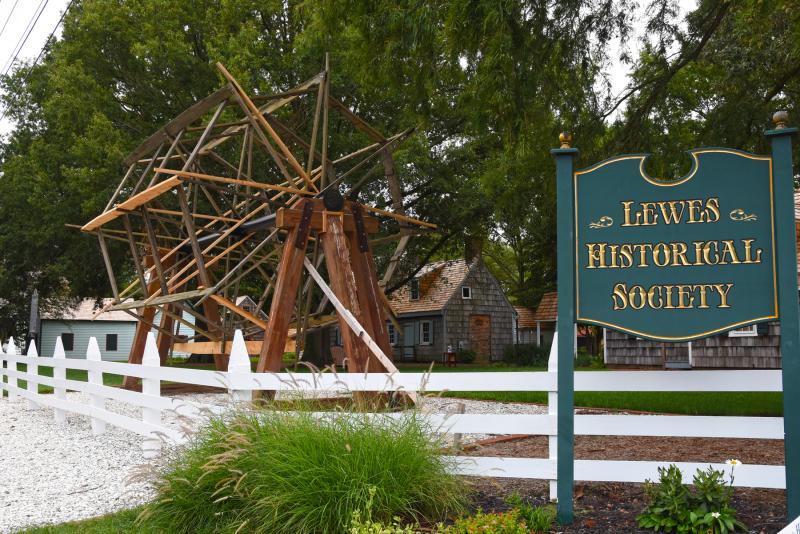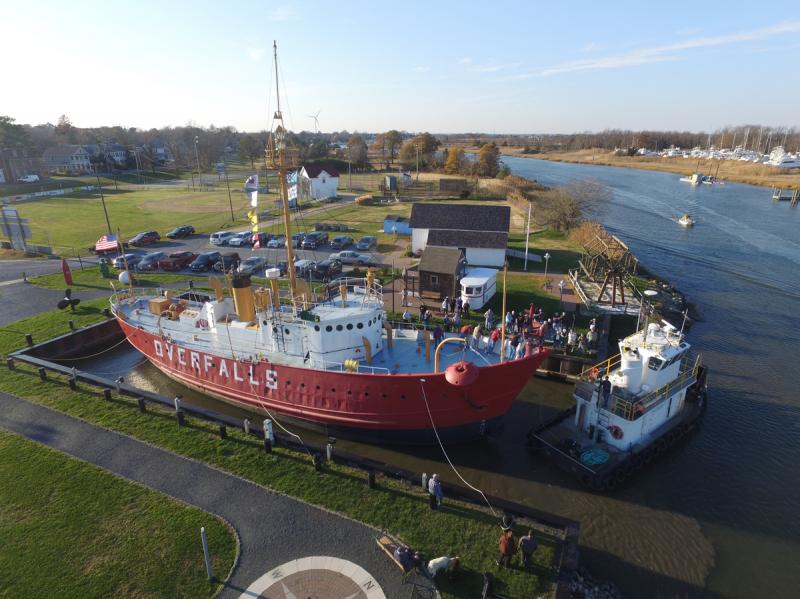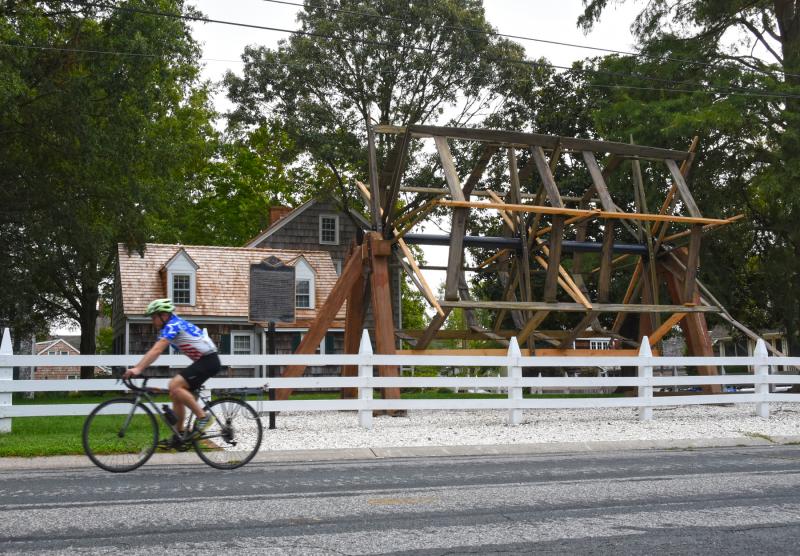Menhaden artifact reels in Lewes controversy

A menhaden fishing net reel that dates back to the heyday of Lewes’ fishing industry must be moved off the campus of the Lewes Historical Society.
The historic preservation architectural review commission voted 6-0 Sept. 1 to deny an application seeking permission to place the artifact at the corner of Third and Shipcarpenter streets. The historical society was seeking approval after the fact, as it had already moved the structure from its longtime location along the Lewes-Rehoboth Canal behind the life-saving station. The move and restoration have cost the society about $30,000, said Executive Director Jim Abbott.
Neighbors bombarded the city with letters objecting to the artifact’s placement, saying it did not fit in with the rhythm and scale of the streetscape. Commissioners agreed, adding that it does not meet requirements set forth in city code.
The dimensions of the cylindrical wooden reel, which was used to pull cotton fishing nets out of saltwater to dry, are 19 feet in height, 32 feet in length and 18 feet in depth.
Abbott says the reel is one of the few remaining artifacts that tells the narrative of the African American community in the 20th century.
“The menhaden industry was one of the rare opportunities in a pre-civil rights America where blacks and whites worked side by side,” he said. “Lewes has a unique history with regard to civil rights pre-1960 in trying to integrate the society and the workplace, and the menhaden industry was a leader in that movement.”
Abbott attempted to integrate the reel as part of a diverse campus that includes a variety of buildings such as a blacksmith shop, schoolhouse and country store.
“It made perfect sense for it to stand on this ground,” he said.
Abbott had also planned to include the reel as part of the African American history walking tour that is currently in development. The Lewes Historical Society campus’ proximity to the former African American neighborhoods within Lewes also supported the reel’s placement at the corner of Third and Shipcarpenter streets, Abbott said.
“The walking tour would have to be fairly compact and would also need to have a physical presence,” he said. “So with that, the reel took on an even greater importance.”
The society has plans to use restored nets during demonstrations to show how it worked.
“We will have two men at a time step into that reel and walk it around to demonstrate how the pre-1950 cotton nets when saturated with saltwater were rolled onto that net reel to dry, and at the same time to identify rips to be repaired,” Abbott said.
Abbott pleaded ignorance in terms of the required application to have the object moved and placed on the society’s campus. He said none of the other historic structures went through an approval process with the city.
Commissioner Randy Burton said the city did not have a historic preservation committee when those buildings were moved.
“I also think there is a good bit of opportunistic flammability in some of the comments that were made by trading on history and ethnicity to try and get what is wanted by the Lewes Historical Society,” he said.
Burton argued the reel would never have been in that location and fits better down where it had been along the canal for many years.
“It’s not in the right place,” he said. “It wasn’t done in the right time. And now we’re left with a loaded cannon that we end up looking like we’re against African American heritage if we vote against this. We’ve been painted into a corner, in my opinion.”
Abbott said in late 2004, a decision was made that subdivided the property line of the historical society’s leased land along the canal. The result is that there is no longer enough space down there to house the reel, Abbott said.
Commissioner George Thomasson said he appreciates the historical significance of the reel, but it does not fit the neighborhood.
“We are charged with conforming to the rhythm and scale of the street,” he said. “Whether the property is zoned residential or not, it’s still part of that streetscape, and the reel does not fit.”
Elizabeth Owen, president of the LHS board of trustees, said the unapproved move was a big misunderstanding. She said city officials previously told them they did not need approvals for work on campus because it was the historical society in the cultural/historic zoning district.
“I do feel that there is probably always going to be somewhat of a conflict between different zones in the city,” she said. “Residential zoning and cultural/historic zoning may have some conflict because what could be considered rhythm and scale in residential is not what would be considered rhythm and scale in cultural/historic.”
Abigail Davis, a lifelong Lewes resident who works for the historical society, reiterated that there was no malice or ill intent in moving the reel without permission from city officials. She also emphasized the importance of preserving artifacts connected to African American heritage.
“You have to consider the African American visitors coming to our town,” she said. “If they saw this object on our main campus, they would know this was a safe and welcoming place for them, and we welcome all history rather than those who wrote the history.”
Linda Palmer, a former historic preservation commission member, said there is a process all property owners must follow in the historic district.
“I think the most egregious thing that has happened here – what has most residents upset – is the face that if you live in the historic district, you have to abide by the rules,” she said. “People are really taken to task on every single issue, and every single rule that is in the code has to be adhered to or at least considered. My problem is with the historical society not feeling the need to apply for this type of structure to be placed there.”
Commissioner Bill Landon said the feelings of the nearby residents need to be considered. He said it was the toughest decision he’s made since being on the commission.
“The comments from the community really get to me,” he said. “We need to listen to our community. Lewes Historical Society offers so much to our town, but we have to listen to the community.”
The historical society may resubmit an application with modifications, but it still must meet criteria set forth in city code. If a second submission is denied, an applicant may again modify the submission or appeal the denial to the board of adjustment.
























































